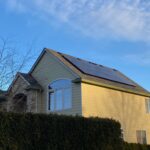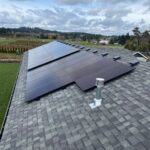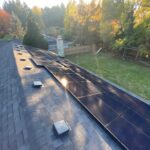Residential Solar: What’s the ROI?
As the world transitions towards a cleaner and greener future, the use of solar panels has become more and more popular. Solar panels generate electricity by harnessing the power of the sun, making them an environmentally friendly and sustainable source of energy. For many homeowners and businesses, the question of return on investment (ROI) remains a concern. We’ll dive into the ROI of solar panels and explore the benefits they can offer.
ROI of solar panels
When considering solar panels, the return on investment must be assessed. This is done by comparing the cost of installation to the amount of money saved through reduced electricity bills. The initial cost of installing solar panels can be significant, but the savings on electricity bills over time can make up for the cost and provide a positive ROI.
The ROI of solar panels depends on several factors, including the cost of electricity in your area, the size of the solar panel system, and the amount of sunlight your area receives. Electricity costs vary across different areas. The higher the cost, the quicker you can recover the cost of installing solar panels.
The size of the solar panel system is another important factor to consider. The larger the system, the more electricity it can generate, which means more savings on electricity bills. However, larger systems also cost more to install, which can affect the ROI.
Finally, the amount of sunlight your area receives can also impact the ROI. Areas with more sunlight will generate more electricity, which can lead to higher savings on electricity bills and a faster ROI.
Benefits of solar panels
In addition to providing a positive ROI, solar panels offer several other benefits:
-
- Lower electricity bills: One of the most significant benefits of solar panels is the savings on electricity bills. By generating your own electricity, you can reduce or even eliminate your dependence on the grid.
- Environmentally friendly: Solar panels are a clean and renewable source of energy, which means they don’t produce harmful emissions.
- Increased home value: Installing solar panels can increase the value of your home. A U.S. Department of Energy study found that homes with solar panels sell for more than those without.
- Government incentives: Tax credits and incentives are available for installing solar panels. These incentives can help offset the initial cost of installation and improve the ROI.
- Energy independence: Solar panels provide energy independence, which means you’re not reliant on the grid for your electricity needs. This can be especially important during power outages or emergencies. Keep in mind that a battery is required for some of these advanced features.
Factors that affect the ROI of solar panels
Several factors can impact the ROI of solar panels, including:
-
- Initial cost: The initial cost of installing solar panels can be significant, which can affect the ROI. However, the cost of solar panels has decreased in recent years, making them more affordable than ever before.
- Size of the system: As mentioned earlier, the size of the solar panel system can impact the ROI. Larger systems generate more electricity and offer more savings on electricity bills, but they also cost more to install.
- Location: The amount of sunlight your home receives can impact the ROI. Homes with more sunlight will generate more electricity and offer more savings on electricity bills.
- Energy consumption: The more electricity you consume, the more savings you can realize on electricity bills. If you consume a lot of electricity, you may be able to recoup the cost of installing solar panels more quickly than someone who consumes less electricity.
- Efficiency: The efficiency of solar panels can also impact the ROI. More efficient panels generate more electricity and offer more savings on electricity bills.
It’s important to note that the ROI of solar panels can vary based on several factors, including those mentioned above. In some cases, the ROI may be lower than in others, but in most cases, the savings on electricity bills and the environmental benefits of solar panels make them a smart investment.
In addition to calculating the ROI, it’s also important to consider the payback period, which is the amount of time it takes to recoup the initial cost of installation. The payback period is calculated by dividing the cost of installation by the annual savings on electricity bills. For example, if the cost of installation is $18,000 and the annual savings on electricity bills are $2,400, the payback period would be 7.5 years ($18,000 / $2,400 = 7.5). This model assumes the price of power stays the same for 7.5 years. We have seen double-digit increases in the cost of electricity in recent years, and that trend is likely to continue.
The payback period can vary based on the same factors that impact the ROI, such as the size of the system, location, and energy consumption. However, most solar panel systems generally have a payback period of 5-10 years, making them a relatively quick return on investment.
The ROI of solar panels can be a concern for homeowners and businesses considering the installation of solar panels. However, as we’ve covered, the savings on electricity bills and environmental benefits of solar panels make them a smart investment for most people.
The ROI of solar panels can vary based on several factors, but in general, most solar panel systems have a positive ROI and a relatively quick payback period. When considering the installation of solar panels, it’s important to consider all the factors that can impact the ROI, including the initial cost, size of the system, location, energy consumption, efficiency, and maintenance costs. By doing so, you can make an informed decision about whether solar panels are right for you.
Secure your home's energy future today
Schedule a Consultation

With our help, you will decide on the appropriate system size for your home and commission solar system installation.
Get a Renewable Energy Plan
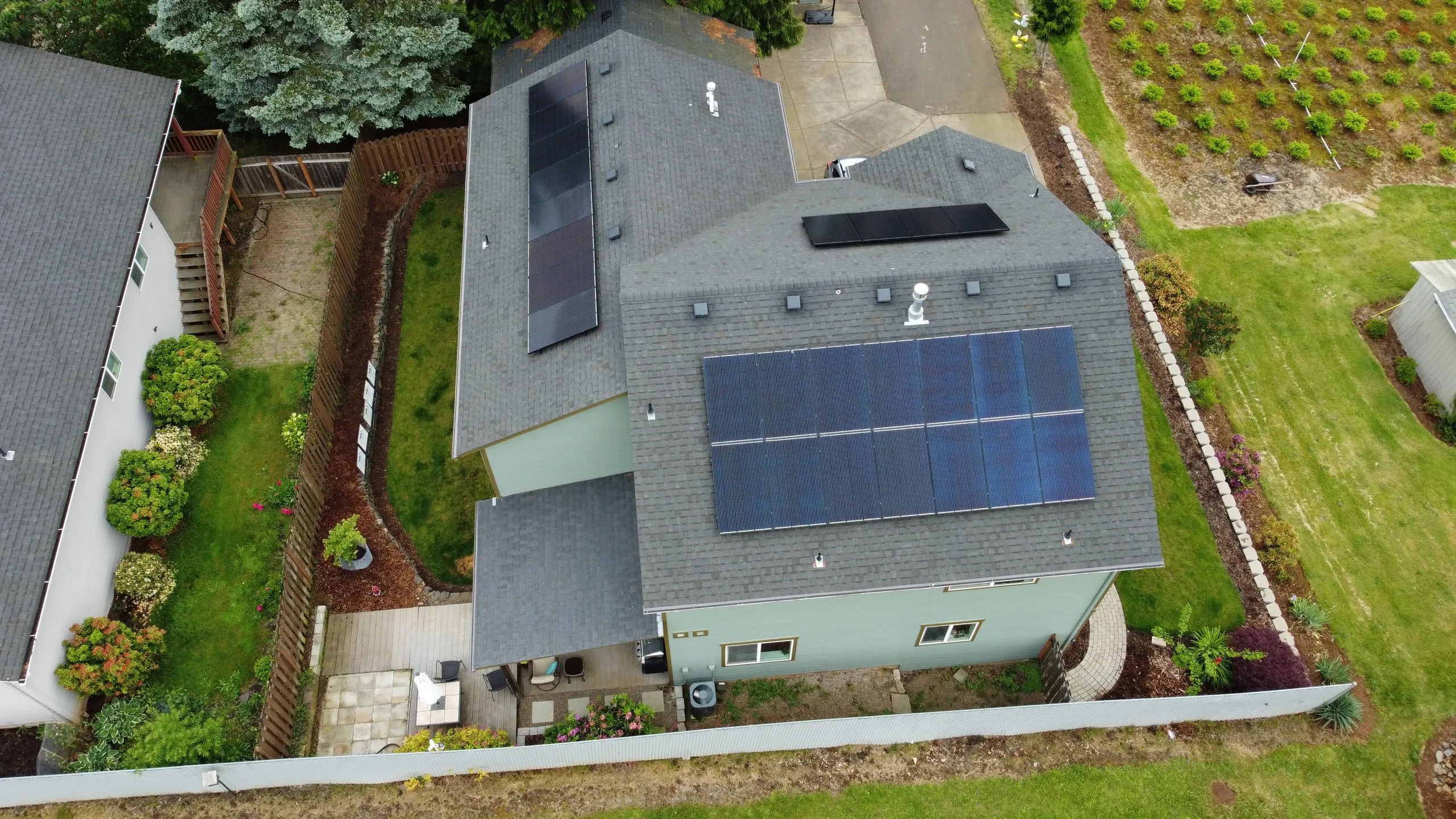
We will walk you through the permitting process for installing residential solar panels.
Secure Your Energy Future
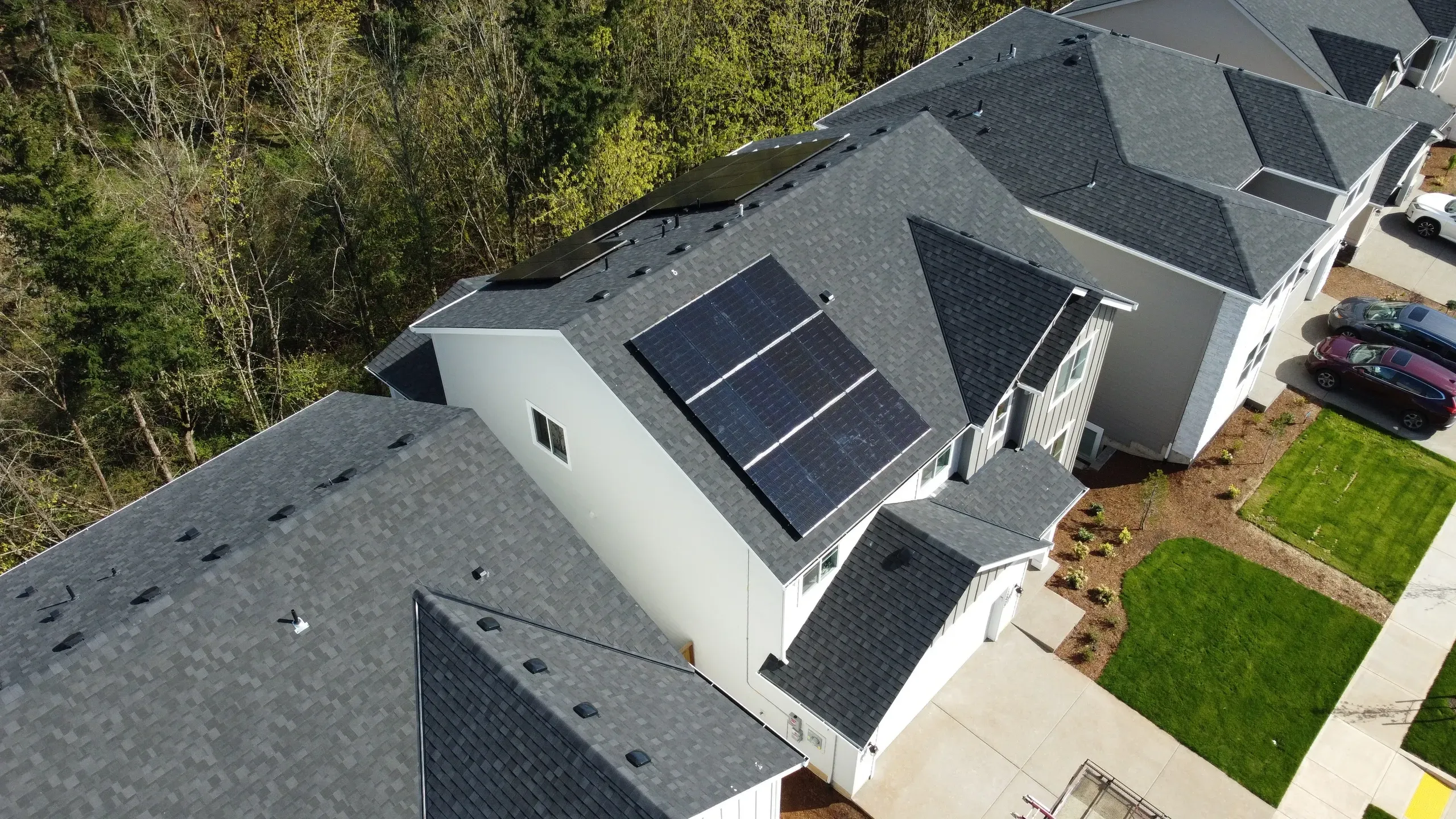
Sunward Power technicians will install your solar panels, ensuring clean energy in your home for decades.

